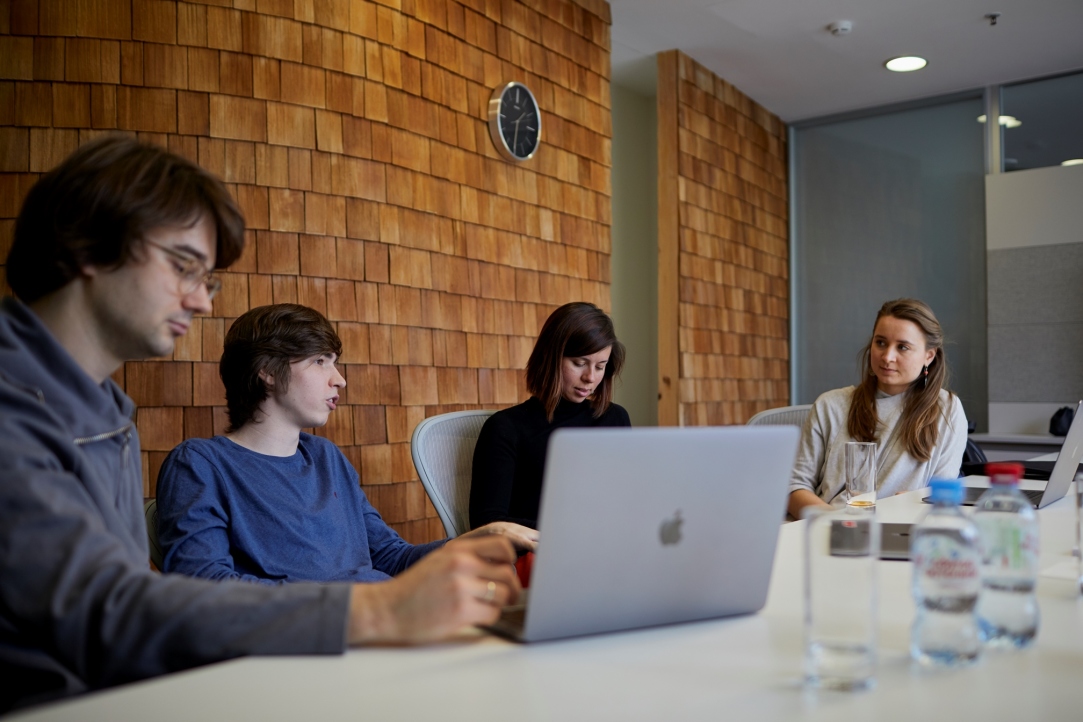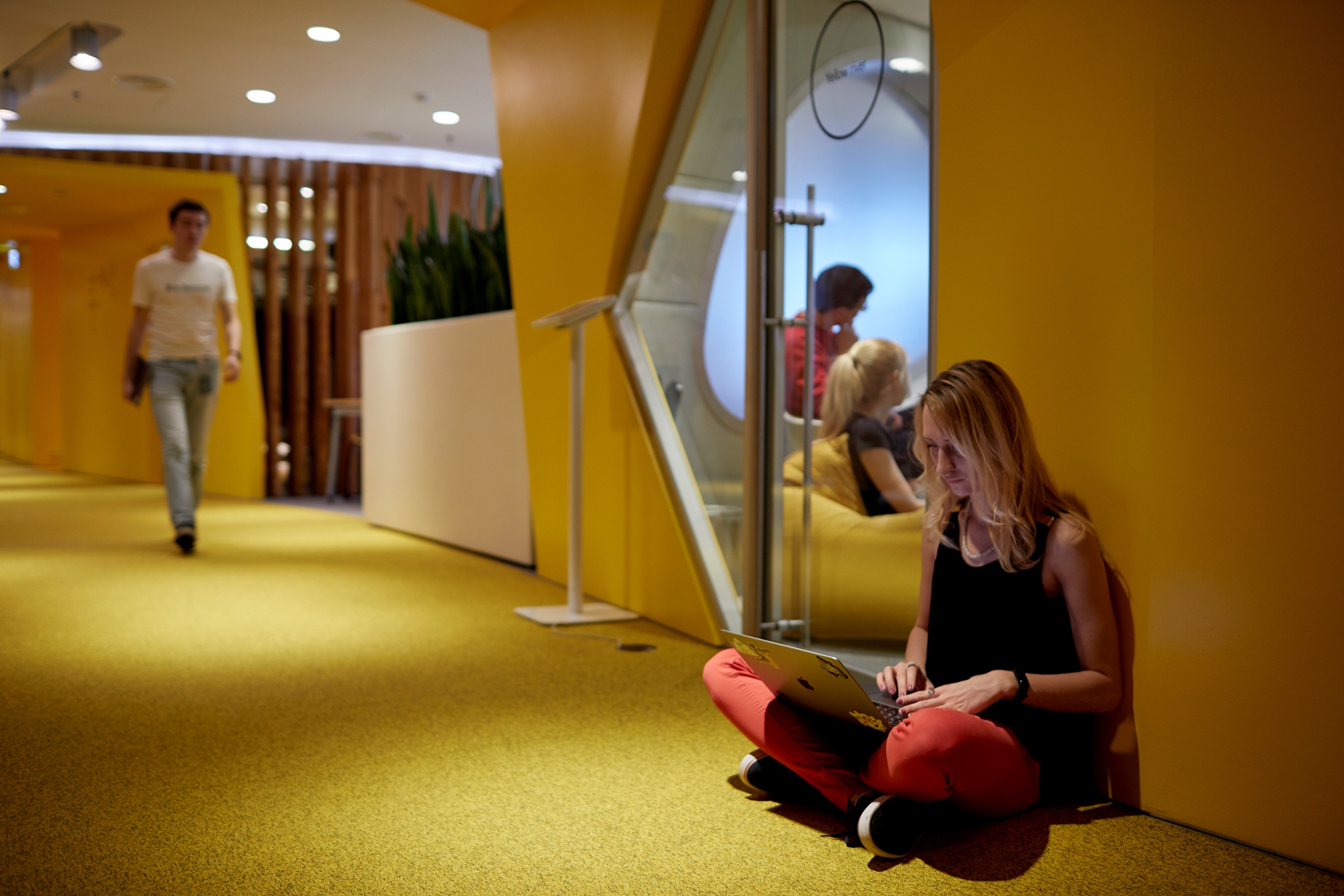‘Don’t Be Shy to Ask Questions, No Matter How Stupid They May Seem’

What does it feel like to take an internship at Yandex? What does it take to get enrolled? How can you deal with failure? HSE University students with internships at Yandex share their experience.
Eldar Damirov, 3rd-year student of the Bachelor’s in Applied Mathematics and Information Science
‘I took an internship in analytics. I passed all the interviews at the end of March 2021, but I wanted to start working after the summer exams. The last exam took place on June 28, and on June 29, I received my work laptop.
I didn't prepare for the mock interview. This is a cool opportunity provided by the faculty and Yandex—any student can have a full-fledged interview and get feedback about what points to work on. If your interview is successful, the result is counted as one of the selection rounds.
At the end of the mock interview, we had 15 minutes left, and I learned a lot about the analyst position and the skills required for the work. This knowledge helped me prepare for the next round of selection. I focused on mathematical statistics, probability theory, algorithms and data structures, SQL and Python. This helped me successfully pass the subsequent technical interviews. When preparing for the algorithm section, I used information from the LeetCode and HackerRank websites. However, I did not properly work through open questions that test analytical thinking and the ability to apply different approaches to solving problems. I was lucky: my experience of participating in various team competitions and case championships—where I often acted as a team analyst—made up for this particular shortcoming in my training.

My internship started with basic teamwork tools. Then I proceeded to the main task of the internship: working with my teammates from the speech recognition team to improve the model’s performance, improving the quality of data for training. It was the biggest and most interesting task of the internship, and we managed to solve it.
Along with the positive moments, there were several failures, especially at the start. I wasn’t used to asking questions of different people, and I was embarrassed to ask even my mentor. But I quickly realised that you shouldn’t be shy to ask questions, no matter how stupid they may seem. I advise future interns to feel free and courageous. You’ll meet experienced colleagues with whom you’ll work closely and who can teach you a lot.’
Christian Benoit, 4th-year student of the Bachelor’s in Software Engineering
‘The first time I took an internship at Yandex was after my first year of studies in 2019. I was developing an internal A/B testing service. I wrote backend in Python, MapReduce tasks in C++ and worked on the user interface in HTML + CSS + JS. I recall the interesting tasks and the friendly and cheerful team.

The next time I got an internship in mobile development was after my third year of studies, in the summer of 2021. This time, I was writing a qualifying contest, and it was quite difficult. I prepared carefully for the next rounds of selection. I repeated the features of the Swift language and the UIKit framework, and with good reason—the interview turned out to be quite difficult. I could not answer a lot of the questions, but, fortunately, I was invited to the next interview on algorithms. I prepared for this interview in the same way as for the first one: I tried to write code very thoughtfully and didn’t use a debugger. At the same time, the algorithm section seemed quite easy to me.
I made a lot of mistakes during my internships, from the first code review (which lasted a month) to mistakes affecting production.
I would advise future interns not to be afraid of selection. It isn’t that scary or difficult. Code a lot and do it thoughtfully. Interviewers will be happy to correct you if you've gone the wrong way.’
Nikita Ratashnyuk, 2nd-year student of the Bachelor’s in Data Science and Business Analytics
‘In the autumn of 2020, I got interested in iOS development and decided to actively develop in this field. I already had programming experience, so I started learning a new language myself using the web. The following autumn, I came across internships at Yandex and decided to try it.
During the selection, I passed four sections (two of which are final). The first section was on mobile development. Information from the internet helped me to prepare for it—Googling helped me to understand what they usually ask in such interviews. You can also watch real open interviews on YouTube.

Then there was the algorithm section. It was a little scary, but in the end everything went well. When I was preparing, I was solving problems on LeetCode and the contest for prospective developers at Yandex. I really enjoyed final interviews. I talked to the heads of cool teams and eventually got into the NLP team that develops Yandex.Translator and Yandex.Keyboard. I managed to work on both products. The most interesting tasks in Translator were stories and topic selection. As for Keyboard, I liked the updated translator and the new settings screen.
Yandex interns solve real problems that will go into production—you can brag to your family and friends! An internship at Yandex is a great start to your career.’
Dmitry Polyakov, 3rd-year student of the Bachelor’s in Applied Mathematics and Information Science
‘When the internship started, I had completed my second year of studies. I chose analytics, and the internship was held in the summer of 2021. I didn't prepare much for the internship selection: I studied, worked on my own projects, learnt the basics of probability theory and Python.
The selection for the internship involved a mock interview, an interview on algorithms, then a section on ‘Analytics and Code’. I think that the most difficult thing is not to make a mistake while writing code, since you have to take into account extreme cases and be careful. It helped me a lot to describe invariants.

At the beginning of the internship, the supervisor said: ‘An intern who doesn’t break anything during the internship is a bad one.’ As a result, two table tennis rackets and my colleague's laptop ended up broken after I fell on them.
During the internship, I had a very cool team, interesting tasks, unlimited coffee, cookies and fruit, a good time at the office, and a salary. I should also mention great team building and corporate events. My business trip to Sochi was the cherry on the cake. I had a lot of positive experiences, from daily team building to the extreme Sochi Amusement Park.
Alexander Malyshenko, 3rd-year student of the Bachelor’s in Software Engineering
‘I have done two Yandex internships: I took mobile development in my first year of studies and backend development in my second year. The first time, I was member of the Yandex.Translator team and learnt the basic knowledge necessary for almost every programmer (git, clean code, etc). After the internship, COVID-19 happened, there was an economic crisis and a lack of jobs for junior developers, so I took a break and started studying everything that I didn't learn during the internship.

During the second internship, I decided to try something new, like databases, multithreaded environment and other pillars of backend development. Then I went for an internship at Yandex.Direct and eventually came to the conclusion that I like writing code most of all, and backend development—which I got engaged in after the internship—has a lot of that.’
See also:
HSE and Unilever Continue to Educate Business Leaders of the Future
On a visit to HSE University on October 18, Unilever CEO Alan Jope met with university leadership and spoke to students in an open lecture about the social mission of business.
HSE MIEM Student on Internship at CERN
Elena Orlova, a fourth year student in Applied Mathematics at MIEM, took part in a summer school at CERN (European Organization for Nuclear Research, Geneva, Switzerland). As part of the GeantV Software Developer Team, she relied on machine learning to model the transition of elementary particles through matter.
Computer Science Faculty Students Complete Work Experience at Facebook
BA students at the HSE’s Computer Science Faculty, Ilona Papava, Roman Alexandrov and Pavel Belov have completed a three-month work experience term at Facebook’s headquarters (Menlo Park, U.S.). How did they land this opportunity? What did it involve? What is their impression of Mark Zuckerberg? HSE News reports.


